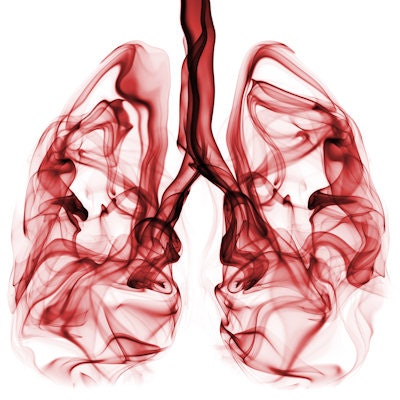
Individuals who completed counseling visits prior to CT lung cancer screening exams demonstrated greater knowledge of the studies after the sessions, including a better understanding of screening's benefits and harms, according to a study published in the March edition of Chest.
A research team led by Dr. Peter Mazzone, director of the lung screening program at the Cleveland Clinic, wanted to assess the effects of the shared decision-making and counseling visits that are required under U.S. guidelines for CT lung screening studies to be eligible for Medicare reimbursement. The group's main question was whether the visits actually helped patients make more informed choices about whether the exams were right for them (Chest, March 2017, Vol. 151:3, pp. 572-578).
The researchers developed a standardized patient counseling program on CT lung screening for patients referred to the Cleveland Clinic that met federal criteria. It includes a review of screening eligibility criteria, a six-minute narrated slide show on the benefits and harms of lung screening, and a decision aid to individualize the discussion of benefits and risks.
They then assessed the impact of the program on patient understanding by performing surveys after the visit and comparing the results with knowledge before the counseling sessions. Patients were surveyed before, immediately after, and one month after the counseling sessions.
In all, 125 patients completed the previsit surveys, 122 filled out the surveys immediately after the sessions, and 113 one month later. The average age of the study subjects was 64.4 years, and all met criteria for CT lung screening in the National Lung Screening Trial, with a mean of 53 pack-years smoked.
The patients showed a statistically significant improvement in their understanding of the concepts behind CT lung screening immediately after the counseling sessions took place, the researchers found. The benefit waned at the one-month mark, but it was still statistically significant compared with levels before the counseling session.
For example, participants were more knowledgeable about the age and number of pack-years smoked to be eligible for screening, and they also gave more correct answers regarding the benefits and harms of screening.
| Knowledge of CT lung screening after counseling session | |||
| Percentage of correct answers | |||
| Previsit | Postvisit | 1-month follow-up | |
| Age criteria | 8.8% | 59.2% | 21.4% |
| Smoking criteria | 13.6% | 40.8% | 35.5% |
| Benefits of screening | 55.2% | 66.4% | 58.8% |
| Harms of screening | 38.4% | 90.4% | 78.6% |
The researchers found a generally poor level of understanding of eligibility criteria and the benefits and harms of screening as individuals entered the program. This understanding improved considerably after the counseling visit, but some knowledge was lost one month later. Interestingly, the researchers found that a small percentage of individuals (5.4%) did not proceed after the counseling visit to the CT lung screening exam, either because they were ineligible or because they chose not to do so.
In their conclusion, the researchers noted that primary care providers and pulmonologists "may not have the understanding, comfort level, or time to engage patients in shared decision-making," according to previous research. Because the knowledge gained from the counseling visits fades over time, there is an opportunity for additional value with a shared decision-making visit before each annual screening exam.
"This would also provide an opportunity to reconfirm eligibility, deliver additional smoking cessation counseling when needed, and build a patient-provider relationship," they concluded.



















